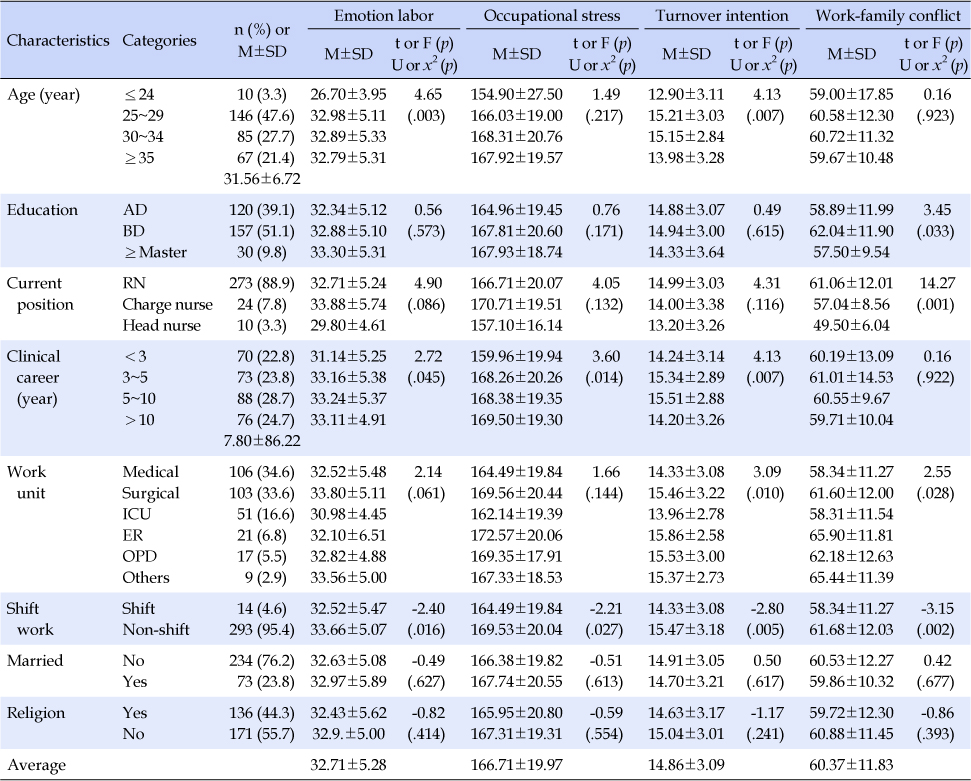1The Graduate School of Chosun University, Korea.
2Department of Nursing, Honam University, Korea.
Copyright © 2016 Korean Academy of Nursing Administration
This is an open access article distributed under the terms of the Creative Commons Attribution Non-Commercial License (http://creativecommons.org/licenses/by-nc/3.0/), which permits unrestricted non-commercial use, distribution, and reproduction in any medium, provided the original work is properly cited.




AD=Associate degree; BD=Baccalaureate degree; RN=Registered nurse, ICU=Intensive care unit, ER=Emergency room, OPD=Out patient department.
*p<.001; †Sobel test.
AD=Associate degree; BD=Baccalaureate degree; RN=Registered nurse, ICU=Intensive care unit, ER=Emergency room, OPD=Out patient department.
*